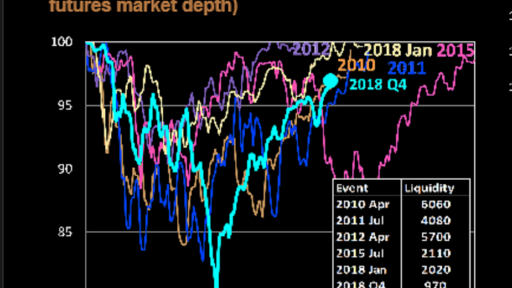- Home
- >
- Daily Accents
- >
- JPMorgan believes that low liquidity is not a cause for concern

JPMorgan believes that low liquidity is not a cause for concern

Over the past six months, the key investor issue emerging from market movements is thin liquidity.
This is also noticed by Marko Kolanovic's strategists, JPMorga, who say that the inability of markets to absorb deals is easily explained by other fundamental factors that make aggressive moves. In the last quarter of 2018, the bank, which measures the depth of the S & P500 e-mini futures market, the value of the measure has fallen to less than a third of the average seen in the last decade.
For Kolanovic, a key point is understanding why the stock jumped again so fast, although a lot of the investors were cash. While the S & P500 grew by 20% on the December bottom, almost every investor classified by JPMorgan, from individual to hedge fund and algo traders, showed little or no indication that they are willing to chase the rally. Their exposure to shares is so low that it borders on the historical minimum.
Liquidity explains how markets can undergo such sharp movements based on small changes in positioning as well as minor changes in the foundation since December. If liquidity was half, it is wise to expect up to two or three times faster market movements for a certain type of cash flow.
Decreasing liquidity is usually associated with an impending market failure. In December, for example, when the S & P500 sank so nearly into a bear market, President Donald Trump and Goldman Sachs strategists have strongly signaled that sell-off may be boosted.
Although JP does not give a good reason why liquidity remains low, they believe that this is the basis for additional stock growth.
Source: Bloomberg Finance L.P.
Graphs: Used with permission of Bloomberg Finance L.P.
 Trader Martin Nikolov
Trader Martin Nikolov Read more:
If you think, we can improve that section,
please comment. Your oppinion is imortant for us.












